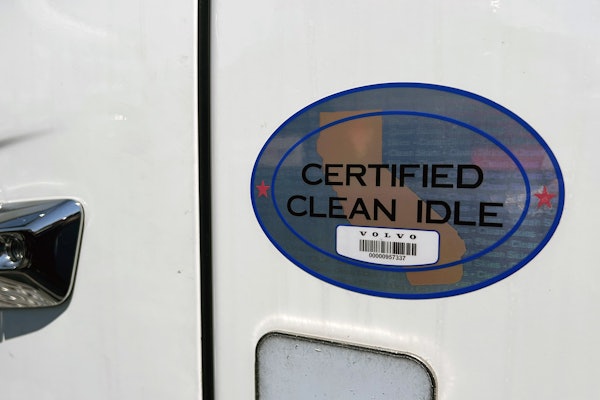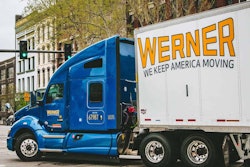The White House Office of Management and Budget on Thursday, Dec. 21, approved the Federal Motor Carrier Safety Administration’s long-awaited proposal regarding use of electronic onboard recorders (EOBRs) for compliance with hour-of-service regulations. The action clears the notice of proposed rulemaking for publication in the Federal Register.
According to FMCSA’s latest regulatory agenda, which was released earlier this month, the agency is proposing to incorporate new performance standards for EOBRs to “help ensure that performance standards for EOBRs are appropriate and reflect state-of-the-art communication and information management technologies.” The rulemaking also will consider the potential benefits and costs of requiring motor carriers to install and use EOBRs and evaluate alternative approaches, including mandating EOBRs industrywide, limiting the requirement to motor carriers with certain characteristics and allowing use of EOBRs to remain voluntary.
FMCSA spokesman Ian Grossman said that the agency expected to publish the EOBR proposal during the first half of January. Federal agencies typically publish proposed and final regulations within a few days of OMB clearance, but FMCSA recently has not always acted so promptly. For example, OMB cleared a final rule concerning supporting documents for driver logs on Sept. 14, but FMCSA still hasn’t published the rule.
Administrator John Hill has said that he has delayed issuing the supporting documents rule to ensure that field personnel were fully trained on it and that the rule will be applied consistently. Now that OMB has cleared both the supporting documents rule and the EOBR proposal, FMCSA might publish them simultaneously since they both are aimed at enhancing compliance with hours-of service regulations. Grossman, however, said there is no timetable yet for publication of the supporting documents rule.
FMCSA launched rulemaking efforts on EOBRs in September 2004, a few weeks after a federal appeals court ordered the agency to reconsider its hours-of-service regulations. Although the court’s ruling technically rested only on the agency’s failure to consider driver health as ordered by Congress, judges faulted FMCSA for failing to even consider mandating EOBRs.





